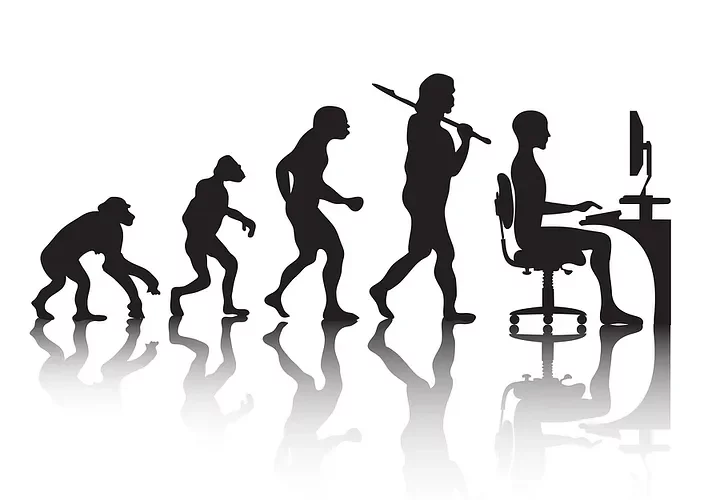Introduction:
In the fast-paced realm of technology, evolution is not just a concept but a constant reality. As the digital landscape undergoes seismic shifts, so do the roles and responsibilities of engineers. Welcome to the era of Engineers 2.0. Where software engineering emerges as the evolutionary force reshaping industries, driving innovation, and defining the future. Let’s embark on a journey to understand the transformative power of software engineering and its profound impact on the next generation of engineers.
The Foundation of Software Engineering: A Brief Overview

Before delving into the evolution of software engineering and its implications, it’s essential to grasp the foundational principles that underpin this dynamic field. At its core, software engineering encompasses the systematic application of engineering approaches to the design, development, and maintenance of software systems. With roots tracing back to the dawn of computing, software engineering has evolved from rudimentary programming practices to a sophisticated discipline that bridges technology and creativity.
Embracing Change with Software Engineering
Engineers 2.0 stand at the forefront of innovation, equipped with a diverse skill set and a forward-thinking mindset. Unlike their predecessors, Engineers 2.0 navigate a digital landscape characterized by rapid advancements in technologies such as artificial intelligence. It cloud computing and blockchain. This evolution necessitates a paradigm shift in how engineers approach problem-solving, collaboration, and continuous learning.
Adaptability in Action: Agile Methodologies and Beyond
Central to the evolution of Engineers 2.0 is the adoption of agile methodologies. Which prioritize adaptability, collaboration, and customer feedback. Agile practices empower engineering teams to iterate quickly. And respond to changing requirements, and deliver value to stakeholders efficiently. Moreover, Engineers 2.0 embrace a culture of continuous improvement, leveraging DevOps principles to streamline development, testing, and deployment processes.
Empowering Engineers 2.0: Tools of the Trade

In the arsenal of Engineers 2.0, a plethora of tools and technologies augment. And their capabilities enabling them to tackle complex challenges with precision and efficiency. From integrated development environments (IDEs) and version control systems to automated testing frameworks. And these are containerization platforms, these tools empower engineers to unleash their creativity and productivity. Furthermore, cloud-native technologies offer Engineers 2.0 scalability, flexibility, and resilience in building and deploying applications.
The Road Ahead: Charting the Course for Engineers 2.0
As Engineers 2.0 continue to chart new territories and push the boundaries of innovation, they must remain vigilant, adaptable, and lifelong learners. The road ahead is paved with both opportunities and challenges, from navigating emerging technologies to addressing ethical considerations and societal impacts. By embracing a growth mindset, cultivating interdisciplinary skills, and fostering a culture of collaboration, Engineers 2.0 can harness the evolutionary force of software engineering to shape a brighter future for generations to come.
Key Points Table: Evolution of Software Engineering
| Aspect | Description |
|---|---|
| Foundation | Software engineering is rooted in the systematic application of engineering principles to software development. |
| Evolution | Engineers 2.0 embrace agile methodologies, continuous learning, and DevOps practices to adapt to the rapidly changing technological landscape. |
| Tools | Engineers 2.0 utilize a diverse array of tools and technologies, including IDEs, version control systems, and cloud-native platforms, to enhance productivity and innovation. |
| Expert Insights | Industry experts offer valuable perspectives on the challenges and opportunities shaping the future of software engineering and the role of Engineers 2.0. |
| Future Challenges | Engineers 2.0 face challenges such as navigating emerging technologies, addressing ethical considerations, and ensuring societal impact in their work. |
Comparative Table: Agile vs. Traditional Development
| Aspect | Agile Development | Traditional Development |
|---|---|---|
| Approach | Iterative and flexible, responding to changing requirements quickly. | Sequential, with rigid planning and limited scope for changes. |
| Collaboration | Emphasizes teamwork, communication, and customer collaboration. | Relies on individual expertise and formal documentation processes. |
| Speed | Rapid delivery of incremental features, enabling faster time to market. | Longer development cycles, resulting in delayed product releases. |
| Customer Satisfaction | Focuses on meeting customer needs through continuous feedback loops. | Customer feedback incorporated late in the development lifecycle. |
| Risk Management | Identifies and mitigates risks early through iterative development. | Risks often discovered late, leading to potential project setbacks. |
Conclusion:
In conclusion, the evolution of software engineering signifies more than just technological progress—it represents a fundamental shift in how engineers perceive, approach, and solve problems. Engineers 2.0 embody the spirit of innovation, adaptability, and resilience, driving transformative change across industries and reshaping the fabric of society. As we embark on this evolutionary journey, let us embrace the challenges, celebrate the achievements, and pave the way for a future where technology serves humanity in unprecedented ways.










